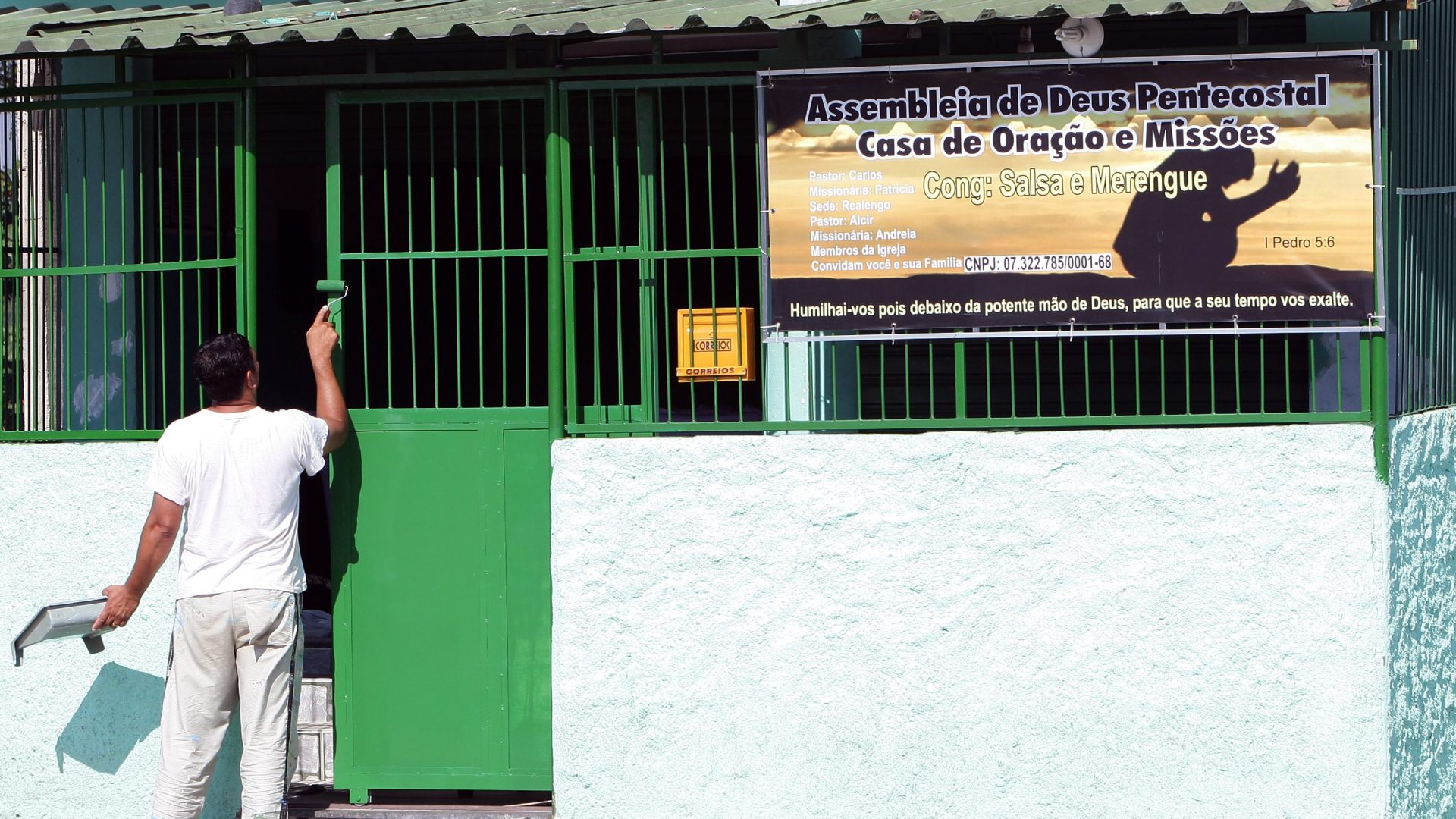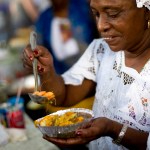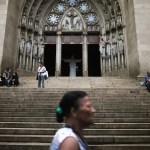Anderson dos Santos’s Saturday nights are busy. After working all day balancing wheels and fixing tires at an auto repair shop, he walks a mile home, takes a shower, and spends time with his family. Then he heads out again.
Santos makes several stops on his way to the Assemblies of God church on Rua da Horta in the city of Ilhéus. At each house, a child or teenager joins him.
The church in northeastern Brazil sits in a dangerous area, surrounded by rival neighborhood criminal groups. But Santos and his young friends tread the dimly lit streets together to the weekly youth service without fear. “Everybody knows us around here, so we can walk safely,” Santos said.
While major cities in Brazil feature megachurches drawing thousands to vast auditoriums, churches like Santos’s dominate the peripheral neighborhoods. These smaller Pentecostal congregations—led by bivocational pastors evangelizing amid poverty and crime—represent the most widespread face of the gospel in the country.
The proliferation of peripheral churches, most with around 50 members, is a defining feature of how evangelicalism developed in Brazil, taking off among poor populations in the outskirts of urban hubs. “In Brazil, more than half the population earns below the minimum wage, and churches reflect that same social profile,” said theologian Tiago de Melo.
Often working informal jobs or self-employed, these church leaders are scrappy and committed. Researchers say they bring an entrepreneurial spirit that has contributed to recent evangelical growth.
“These are people who come from an economic and social environment marked by precarious work,” like unemployment and odd jobs, said anthropologist Jefferson Arantes. For the past three years, he has interviewed pastors in the Campinas region of São Paulo State as part of his research.
“They are people deeply committed to God but not necessarily to denominations and institutions, which is why many end up turning their congregations into nondenominational churches,” Arantes added. “These conditions make the landscape very difficult to map, because these are small churches and many are autonomous, with no ties to denominations.”
Evangelicals—including Pentecostals and those in other Protestant traditions—now make up 26.9 percent of Brazilians over the age of 10. The country already has more than 597,000 religious buildings, and estimates suggest a new evangelical church opens every six days in São Paulo, Brazil’s largest city.
In his research, Arantes recounts how one small-church leader summed it up: “Can you imagine if there weren’t churches, man? We’d have to build 500 million asylums because people would lose it. Church helps people so much.”
But while neo-Pentecostal groups such as the Brazil-based Universal Church of the Kingdom of God preach prosperity theology, peripheral churches like Santos’s tend to offer congregants more traditional gospel teaching closer to classical Pentecostalism.
The churches still feature personal accounts of overcoming poverty, but only as a side effect of gospel transformation. After converting, people stop wasting money on drinking, gambling, and vanity and dedicate themselves more to studying or working. As a result, they can testify to their congregation—and their neighbors—how God has changed their lives and helped them leave poverty behind.
“The discourse of financial prosperity is present in the periphery, in the music people listen to, in the influencers they follow on social media,” Melo said. “In Brazilian Pentecostal liturgy, it shows up in testimonies, which are present in almost every service.”
Churches welcome participation from all segments of the community, including the elderly and children, and hold time for testimonies each week.
“The Pentecostal church, with its discourse and practice aimed at reducing the distance between leaders and laypeople, brought the solidarity that already existed among the poor,” said pastor Marco Davi de Oliveira, author of a book about black Pentecostals in Brazil. “The poor came to see themselves as coparticipants in God’s work on earth, no longer the rejected ones who could not read or write.”
The typical face of Brazilian evangelicalism is female, black, and Pentecostal, as shown by data from the research institute Datafolha in 2020 and 2024.
In the outskirts of cities like Ilhéus, the responsibility of being coparticipants in God’s work makes young people unafraid to walk at night through the hills alongside Anderson dos Santos.
The church’s schedule is full and so is Santos’s. In addition to the Saturday night gatherings, church members meet for Sunday school in the morning and then for an evening service. They hold house meetings on Mondays and street evangelism on Wednesdays and Fridays.
“For the kingdom, we must always be available,” Santos said at the close of a Sunday service.
The next morning at 5 a.m., he would begin his work again.















